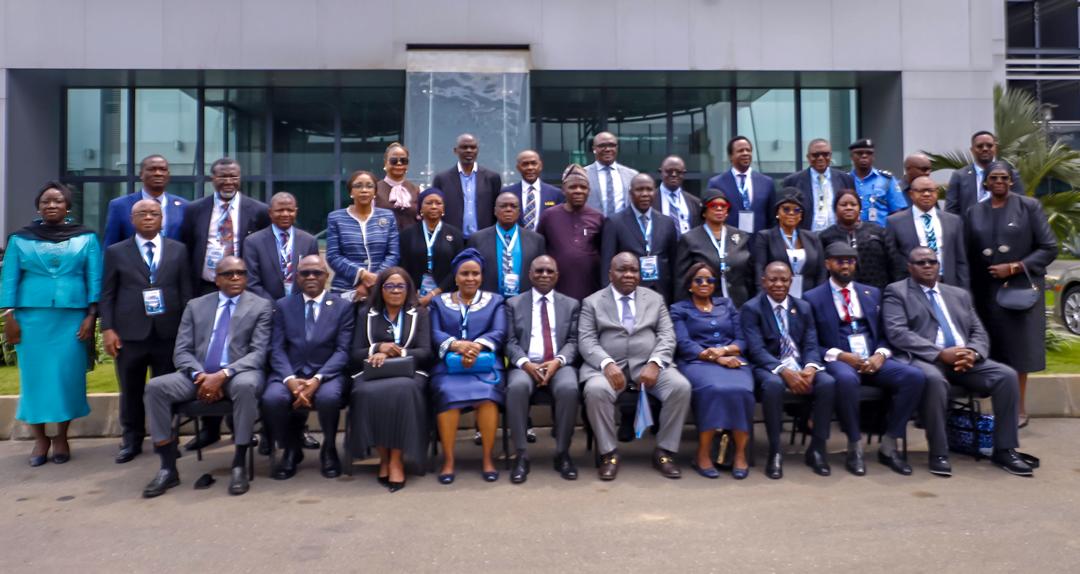The Nigerian Maritime Administration and Safety Agency (NIMASA) has described the judiciary as a crucial partner in the country’s quest to unlock the full benefits of the Blue Economy, emphasising that effective legal interpretation and adjudication are central to sustainable maritime growth.
Speaking in Lagos at the 4th Edition of the Admiralty Law Colloquium themed “Charting the Course of Nigeria’s Blue Economy,” the Director-General of NIMASA, Dr Dayo Mobereola, said the judiciary’s contribution remains indispensable in ensuring that the Blue Economy translates from vision to verifiable national development outcomes.
According to a statement by NIMASA’s Assistant Director of Public Relations, Mr Osagie Edward, Dr Mobereola, in his welcome address, stressed that Nigeria’s Blue Economy requires “an all-hands-on-deck approach, with the judiciary as a crucial actor, where interpretation of legal instruments and case decisions remains a vital tool for the sustainable development of Nigeria’s Blue Economy.”
He noted that judicial interpretation of maritime laws strengthens industry confidence, promotes fair competition, and ensures that Nigeria aligns with international best practices in shipping, marine resource management, and environmental protection.
Mobereola also commended the judiciary for its increasing interest in maritime matters, stating that their role in clarifying complex issues of liability, contract enforcement, and maritime safety has direct implications for investment and industry growth.
Delivering the keynote address, the Chief Justice of Nigeria, Justice Kudirat Motonmori Olatokunbo Kekere-Ekun, who was represented by Justice Emmanuel Akomaye Agim praised NIMASA and the National Institute of Advanced Legal Studies (NIALS) for organising the colloquium, which she described as vital to enhancing the competence of judicial officers in admiralty law.
The Chief Justice underscored the need for the judiciary to take an active role in shaping the nation’s maritime future, observing that, “the task before us is to ensure that Nigeria’s Blue Economy does not remain a conceptual aspiration but becomes a tangible driver of growth, equity, and sustainability. The judiciary must not stand at the shoreline as a passive observer, but rather as an active navigator — steering the ship of justice through the complex waters of maritime development.”
The event featured presentations by two leading maritime law experts, Dr Emeka Akabogu, SAN, and Dr Chukwuchefu Ukatta, who both highlighted the need for stronger synergy between judicial processes and the practical implementation of Blue Economy policies.
A panel discussion chaired by Professor A. J. Abikan, Director-General of NIALS, provided a forum for robust exchange of ideas among participants drawn from the bench, bar, and maritime industry.
In attendance were the President of the Court of Appeal, Honourable Justice M. B. Dongban-Mensem, represented by Honourable Justice E. O. Williams-Dawodu, and the Chief Judge of the Federal High Court, Honourable Justice John Tsoho, represented by Justice A. Faji.
The Admiralty Law Colloquium, jointly organised by NIMASA and NIALS with support from the National Judicial Institute (NJI), is an annual platform that brings together key stakeholders in the maritime and legal sectors to discuss emerging issues in maritime law, enhance adjudication standards, and promote effective governance of Nigeria’s marine and blue economy.
